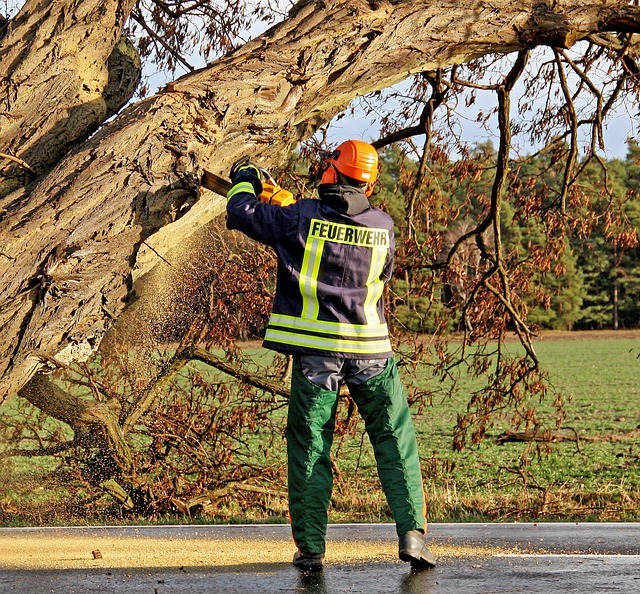Selling a house with fire damage in California comes with specific legal disclosure requirements designed to ensure transparency and protect buyers and sellers. Sellers must disclose any previous fire-related issues, including extent of damage, made repairs, and remaining structural concerns, in writing to potential buyers. Failure to do so can result in serious legal repercussions. Compliance is vital for fairness, informed decision-making, and a smooth sale process. Understanding these regulations is crucial for protecting all parties involved.
“In California, real estate disclosure laws are stringent, especially regarding fire damage. This comprehensive guide delves into the intricate details of understanding and complying with these requirements for sellers looking to navigate the market with properties that have experienced fire damage. From legal obligations to potential consequences, we explore why transparent disclosures are crucial for a seamless buying and selling experience in California real estate transactions.”
- Understanding Fire Damage Disclosure Requirements in California
- Legal Obligations for Sellers: What to Reveal
- The Impact of Concealing Fire Damage on Buying and Selling
- Exceptions and Exclusions: When Disclosure May Not Be Necessary
- Consequences of Non-Compliance: Penalties and Liability
- Best Practices for Open and Transparent Real Estate Transactions
Understanding Fire Damage Disclosure Requirements in California

In California, when it comes to selling a house with fire damage, there are specific disclosure requirements that must be met. These regulations are in place to ensure transparency and protect both buyers and sellers. According to state laws, any seller who knows of previous fire-related issues must disclose these details in writing to potential buyers before the sale can proceed. This includes providing information about the extent of the damage, repairs made, and any remaining structural concerns.
Fire damage disclosure forms are typically completed by the seller and provided to the buyer’s agent, ensuring that all relevant parties are aware of any potential risks. Buyers have a right to know if there have been previous fires in the property, as this could impact their decision-making process and future insurance costs. Selling a house with fire damage in California requires adherence to these strict disclosure laws, promoting fairness and informed choices in real estate transactions.
Legal Obligations for Sellers: What to Reveal

When selling a house in California, sellers have stringent legal obligations to disclose certain information to potential buyers. This includes revealing any history of fire damage within the property. Fire damage can significantly impact a home’s structural integrity and safety, making it crucial for buyers to be fully informed. Sellers must provide detailed accounts of any fires that have occurred, including when, where, and the extent of the damage.
In California, sellers are legally required to disclose known defects or issues that could affect a property’s value or safety. This includes fire damage, regardless of its severity. Omitting such information can lead to legal repercussions, as it is considered fraudulent or negligent disclosure. Buyers have the right to inspect the property and may request additional information or repairs before finalizing the sale.
The Impact of Concealing Fire Damage on Buying and Selling

When it comes to selling a house with fire damage in California, transparency is key. Concealing or misrepresenting such damage can have significant repercussions for both buyers and sellers. If a buyer discovers hidden fire damage after purchasing the property, it could lead to legal disputes, financial losses, and even safety hazards.
In California, real estate disclosure laws are stringent, mandating that sellers reveal any known material defects, including fire damage. Failing to do so may result in civil liability and potential criminal charges. For buyers, being aware of any historical fire damage is crucial for making informed decisions about purchasing a property. This transparency ensures that both parties understand the condition of the home, fostering trust and preventing future disputes related to selling a house with fire damage.
Exceptions and Exclusions: When Disclosure May Not Be Necessary

When it comes to real estate transactions in California, sellers are generally required to disclose any known issues or defects that could impact a buyer’s decision to purchase a property. However, there are exceptions and exclusions where disclosure may not be necessary. One such scenario is when a property has sustained fire damage but has been repaired to its original condition. In cases where the fire damage was limited, structurally sound repairs have been completed, and all safety standards have been met, sellers might not be legally obligated to disclose the previous incident.
This exception is based on the assumption that buyers who are fully aware of the property’s history will make informed decisions regardless. Moreover, California laws prioritize full disclosure while also recognizing that some defects or issues may be immaterial or easily remedied. Therefore, minor fire damage that has been adequately addressed falls outside the typical disclosure requirements, ensuring a smoother transaction for all parties involved in selling a house with fire damage in California.
Consequences of Non-Compliance: Penalties and Liability

In California, non-compliance with real estate disclosure laws can lead to significant consequences for sellers and agents. One of the most critical aspects is the obligation to disclose any known material defects in a property, including fire damage. Selling a house with hidden fire damage that goes unrevealed can result in severe penalties. Homebuyers have legal rights, and if they discover undisclosed issues post-purchase, they may file complaints or take legal action against the seller and their agents.
The penalties for non-compliance can include monetary fines, lawsuits, and even criminal charges. In cases of severe negligence or intentional misrepresentation, individuals found guilty may face substantial financial liabilities and damage to their professional reputation. It’s essential to understand that real estate transactions are heavily regulated, and adhering to disclosure requirements is vital to protect all parties involved.
Best Practices for Open and Transparent Real Estate Transactions

When selling a house with fire damage in California, transparency is key to ensuring a smooth and ethical transaction. It’s crucial to disclose any known issues, including fire damage, to potential buyers. This open communication helps buyers make informed decisions and avoids legal complications down the line.
Best practices involve providing detailed and accurate information about the extent of the fire damage, any repairs carried out, and the current state of the property. Offer documents like repair estimates, permits, and inspections reports to substantiate your disclosures. Additionally, be prepared to answer questions honestly and openly, fostering a relationship based on trust and transparency—a critical component in successful real estate transactions, especially when dealing with sensitive matters such as fire damage.
When selling a house with fire damage in California, adhering to strict disclosure laws is paramount. Understanding these regulations ensures transparent real estate transactions, fostering trust between sellers and buyers. By revealing fire damage disclosures accurately, sellers can mitigate potential legal consequences and avoid penalties associated with non-compliance. This practice not only protects the seller but also enables buyers to make informed decisions, ultimately promoting a fair and open market for all participants involved in California’s vibrant real estate landscape.






